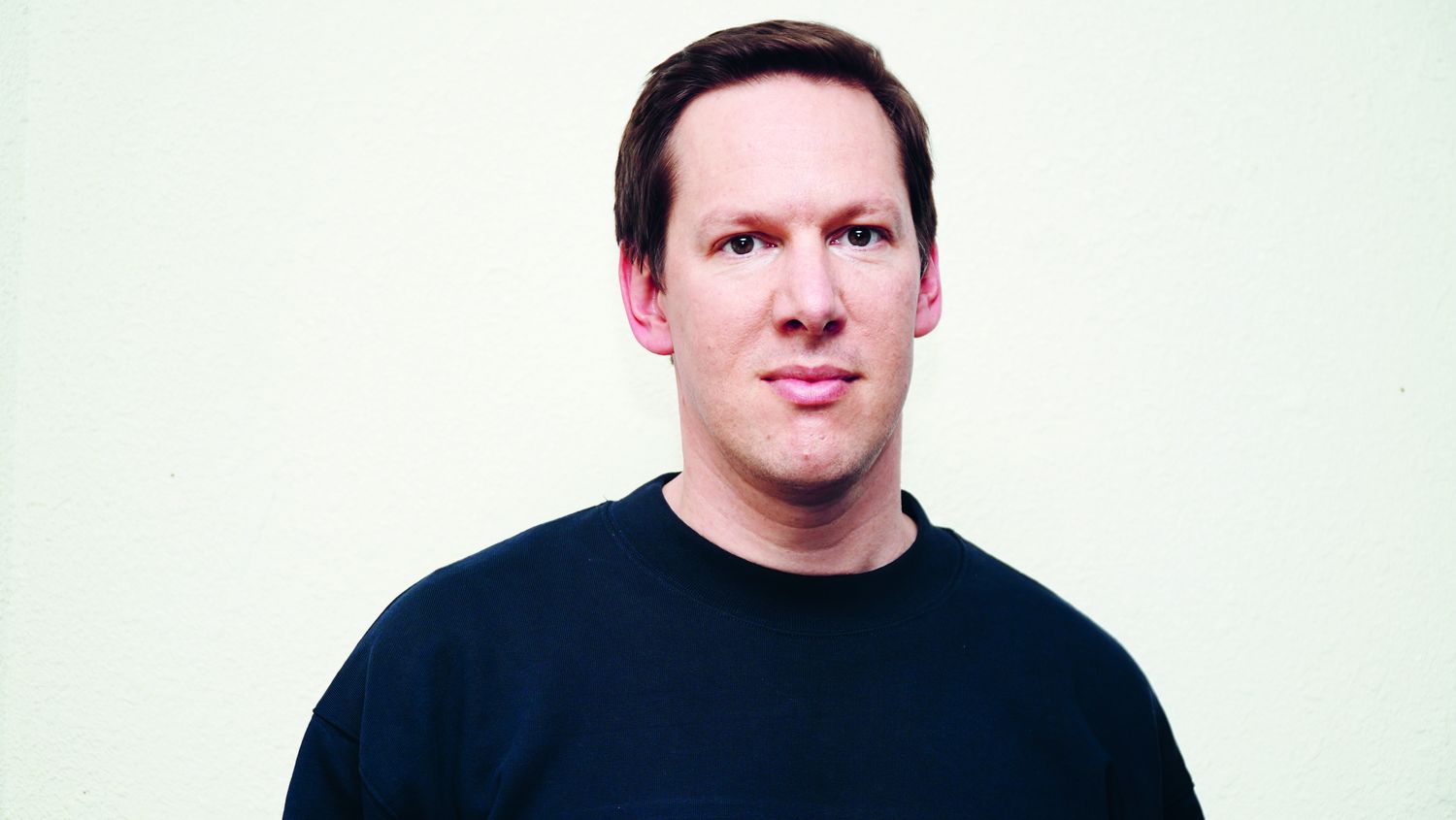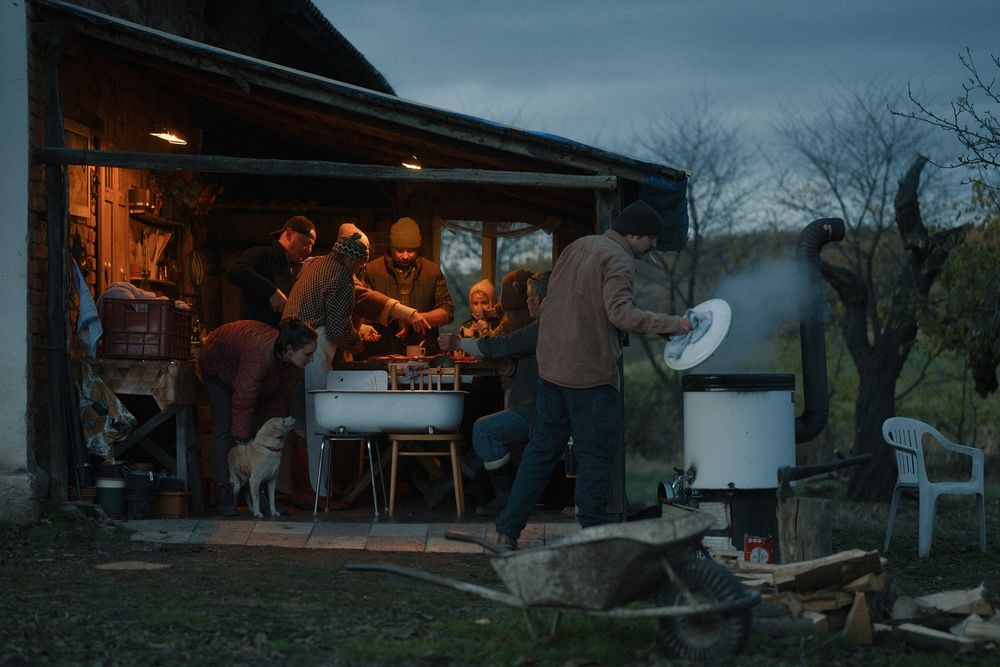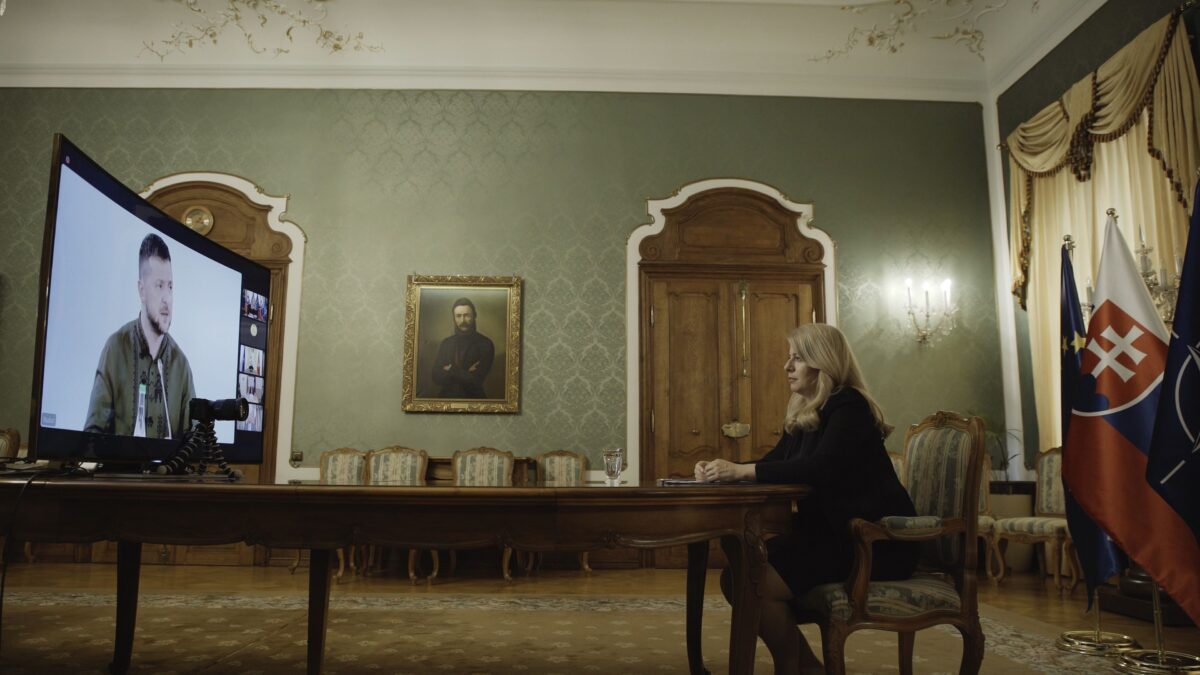This year, twenty promising film producers from different European countries have been brought together by the Producers on the Move initiative once again. The programme is aimed at connecting young, enterprising European producers with potential co-production partners, strengthening their industry networks, and at the same time, providing a solid and visible platform for this next generation of European filmmakers. This year, Slovakia is represented by Juraj Krasnohorský, the producer of successful films such as White Plastic Sky (d. Tibor Bánóczki, Sarolta Szabó) which just premiered at the Berlinale.
Do you have any specific expectations regarding your participation in the Producers on the Move programme?
Personally, I see the main purpose of the programme in the meetings arranged by the organiser at Cannes. We get to meet selected representatives of the European film industry, which is an exclusive opportunity to present our projects. That is precisely what brings me there, as we have just finished the development of the fiction film The Fall. Patrik Pašš Jr. wrote the script and Juraj Lehotský is set to direct it. We want to make it a European film – collaborate with international partners, cast top-notch international actors, and film it in English. This constitutes a new challenge for me, but there are also some elements which would be new in the context of Slovak cinema. The Producers on the Move platform will actively make us visible at Cannes, which will help me find the right partners.
You also work on the film Electra. What other projects of yours are currently in the process?
Besides Electra, the much-anticipated second film of the Oscar-nominated Daria Kashcheeva, another short animated film from our production will premiere this year – Hungarian director Olivér Hegyi’s The Garden of Heart. Then, we hope we’ll finish two more animated shorts next year – director Jan Saska’s Hurikan and Slovak director Marta Prokopová’s Everything We Missed. Regarding feature animated films, this year we are shooting Of Unwanted Things and People, a puppet film for kids. Another project that brings me joy are new episodes of Icons, the successful docuseries about Slovak architecture. Aside from the second Slovak series, it is set to also make an international, Central European version.
Artichoke’s finished projects and works in progress include fiction films and a documentary series, but animated works are undoubtedly the most prevalent. In Slovakia, it’s mostly animated films’ directors that get to produce them. What has drawn you towards animation the most?
I’ve always found animation appealing. Even as a beginning director, I had the ambition to make animated films too. It has never been about the technique for me, not even later when I started working as a producer exclusively. If animation is the best way to tell a story, then it simply works. This was the case for the well-known Waltz with Bashir, for instance – no one ever starts to wonder whether it would be better as fiction. However, my work on animated films in the last ten years also made me grow fond of the people from the field of animated film, mostly due to the initiatives related to the international CEE Animation association. The educational training titled CEE Animation Workshop, which I established and have been in charge of, is part of it. In comparison to fiction film creators, animation folks have always appeared less competitive and more easy-going to me, in a way.
Your production company, Artichoke, co-produced the film White Plastic Sky, which just premiered at the Berlinale. What gave rise to this collaboration? Why did the project catch your interest?
White Plastic Sky is one of the success stories of CEE Animation, the international collaboration of producers from Central European associations of animated film. It has become a large structure organising workshops as well as a pitching forum, which is where I met the film’s producers and directors ten years ago. At that time, they were teaching at the prestigious MOME in Budapest. When they had the idea for a film set somewhere in between Budapest and Tatras that would combine 2D and 3D technologies – meaning work could be easily split among two teams in two different countries – it felt natural to join our creative forces, capabilities, and finances to try to make the ambitious project come to life.
And what part of the script caught my attention? To me, the script seemed to be the absolute best one I’ve ever read in my life. I’ve always had a thing for sci-fi, but the human story and the environmental and philosophical dimensions resonate very strongly here. It felt as if I was reading one of the classics of the genre, but a one yet undiscovered. It’s a love story of two people in a world where nature disappeared and humans are the only thing left. It is modern and topical since it clearly raises the question of what will we do when climate change takes a turn for the worse, which is what all the evidence suggests. In some ways, it’s reminiscent of the story of Adam and Eve. In other aspects, it’s like the ancient tragedy of Orpheus and Eurydice, it is mythological, even. Moreover, the idea of depicting our Central European region, Budapest and the Tatras, in the 22nd century seemed like a great idea to me. In general, films depict the future in this part of the world very rarely.
What do you feel are Slovak animation’s strong suits capable of catching the interest of international producers?
Considering how relatively small our film industry is (especially when it comes to animation), Slovakia has surprisingly many talents of European significance, which is very positive. For years, Kata Kerekesová with her series Mimi and Lisa and The Websters has been a successful example for the entire Central European region. We have excellent, talented young directors which have already earned international recognition with their first works, and can now make bold films. And at least in my experience, we have proven to be a strong partner even to big European projects, especially in relation to 3D animation. Our contribution lies not so much in a large number of experienced people, but rather in ingenious solutions where a smaller work team would suffice. I’ll mention the animated feature film The Siren by Sepideh Farsi that also premiered at the Berlinale in the Panorama section, for instance. It’s a big French-Belgian-German-Luxembourgish co-production in which we haven’t participated as co-producers, but thanks to a great idea and excellent work of a small team from Blue Faces studio located in Bratislava, we made almost 30 minutes of animation in the film.
So two of the films you collaborated on, White Plastic Sky and The Siren, made it to this year’s selection of the Berlinale. Now, Electra will compete in the Cannes’ La Cinef section. What is the secret besides the hard work?
I would like to emphasise that for us, the 33% cash rebate in Slovakia is a very important instrument when it comes to extensive co-productions. This financing system is well-known to European producers and it is what makes us competitive on the European level. I feel that even though our market is small, we can play a key part even in big and costly European films thanks to good ideas. This has vividly put us on the map of European film in the last years and I dare say that our brand will rise in the upcoming years.
Text: Lea Pagáčová & Veronika Krejčová
Photo: archive of Juraj Krasnohorský
The Producers on the Move initiative was established in 2000, and almost 450 producers from all over Europe have since participated in the programme which aims to publicise producers, expand their professional network, and present their projects. Slovakia was represented by Marko Škop, Silvia Panáková, Michal Kollár, Katarína Krnáčová, Marek Urban, Peter Badač, Katarína Tomková and Jakub Viktorín, for instance. The programme, sponsored by the international organisation European Film Promotion, is connected with the Festival de Cannes as well as the film market Marché du Film.

Electra
La Cinef
Screening:
May 24 | 14:30 | Buñuel Theatre (premiere)








